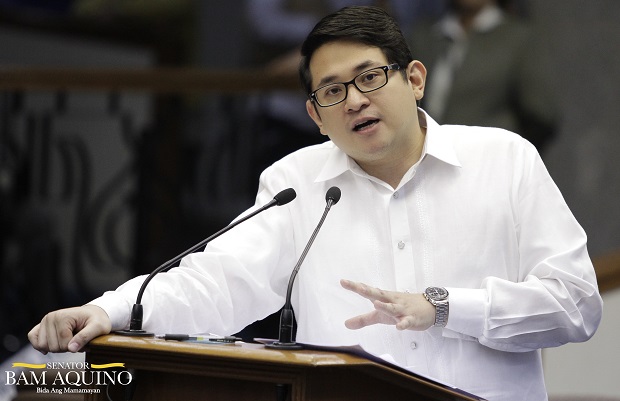BIDA KA!: Unang SONA
Mga bida, noong Lunes napakinggan natin ang kauna-unahang State of the Nation Address (SONA) ni Pangulong Rody Duterte, 26 na araw matapos maupo bilang ika-16 na pinuno ng bansa.
Isa’t kalahating oras ang haba ng talumpati ni Pangulong Duterte, na sumentro sa iba’t ibang isyung mahalaga sa bansa at inaantabayanan ng taumbayan.
Mula sa iligal na droga, pagnenegosyo, kalikasan, katiwalian, mabilis na serbisyo sa pamahalaan, isyu sa China, problema sa Internet, kapayapaan at kagutuman, natalakay ni Pangulong Duterte sa kanyang SONA.
Malinaw ring nailatag ng Pangulo ang mga direktiba sa mga ahensiya ng pamahalaan at ang direksiyon ng mga plano na nangangailangan ng tulong ng mga mambabatas.
Kasama rito ang pagbuo ng isang pederal na sistema ng pamahalaan at pagbababa ng buwis ng mamamayan.
***
Sinabayan ng Pangulong Duterte ang talumpati ng kanyang trademark na mga biro at punchline na nagbigay-tuwa sa mga mambabatas at iba pang mga panauhin na nagtipon sa plenaryo ng Kamara.
Sa kabila ng mga birong ito, ramdam natin na seryoso si Pangulong Duterte sa kanyang mga binitiwang kataga, lalo na nang ikuwento niya ang mga taong natutulog sa kalsada habang naghihintay na magbukas ang ahensiya ng gobyerno na nasa isang mall.
Maaalala ang speech ng Pangulo sa pagbabahagi niya ng personal na karanasan at ‘di pagsunod sa script na nasa teleprompter.
***
Nagpapasalamat din tayo kay Pangulong Duterte sa pagbanggit niya sa ilang mga adbokasiya na isinusulong natin sa Senado.
Kabilang na rito ang pagpapabilis ng proseso sa pagkuha ng mga papeles sa pamahalaan, pagpapaganda sa serbisyo ng Internet, pagpapababa ng buwis, pagtulong sa entrepreneurs at pagpapaganda ng sistema ng edukasyon sa bansa.
Mga bida, hindi naman lingid sa inyo na isinusulong na natin ang mabilis at abot-kayang Internet sa bansa noon pang 16th Congress.
Sa direktiba ni Duterte sa bagong tatag na Department of Information and Communication Technology na bumuo ng isang National Broadband Plan, inaasahan nating gaganda ang serbisyo ng Internet sa bansa.
Marami rin tayong naipasang batas na sumusuporta sa micro, small and medium enterprises at nagtataguyod ng ease of doing business sa 16th Congress, tulad ng Philippine Competition Act, Go Negosyo Act ar Youth Entrepreneurship Act.
Ang mga batas na ito ay makatutulong sa hangarin ni Pangulong Duterte na pabilisin ang proseso ng pagnenegosyo at paigtingin pa ang serbisyo sa ating micro, small at medium enterprises, na siyang haligi ng ating ekonomiya.
Ngayong 17th Congress, naghain tayo ng 100 panukalang batas at resolusyon ukol sa iba’t ibang isyu, kabilang ang pagpapaganda ng sistema ng edukasyon at reporma sa pagbubuwis sa pamamagitan ng Personal Tax Reform at Corporate Tax Reform bills.
Ngayong malinaw na ang direksiyon na nais tahakin ng Duterte administration, tiwala tayo na maisasabatas ang mga panukalang ito, para na rin sa kapakanan ng publiko.
Nagpalit man ng liderato ang Senado, tuluy-tuloy pa rin tayo sa pagtatrabaho para sa ating mga bida.
Palagi kong sinasabi na magkakaiba man ang aming mga partido, pagbubuklurin pa rin kami ng aming pagnanais na pagsilbihan ang taumbayan.
Article first published on Abante Online

Recent Comments